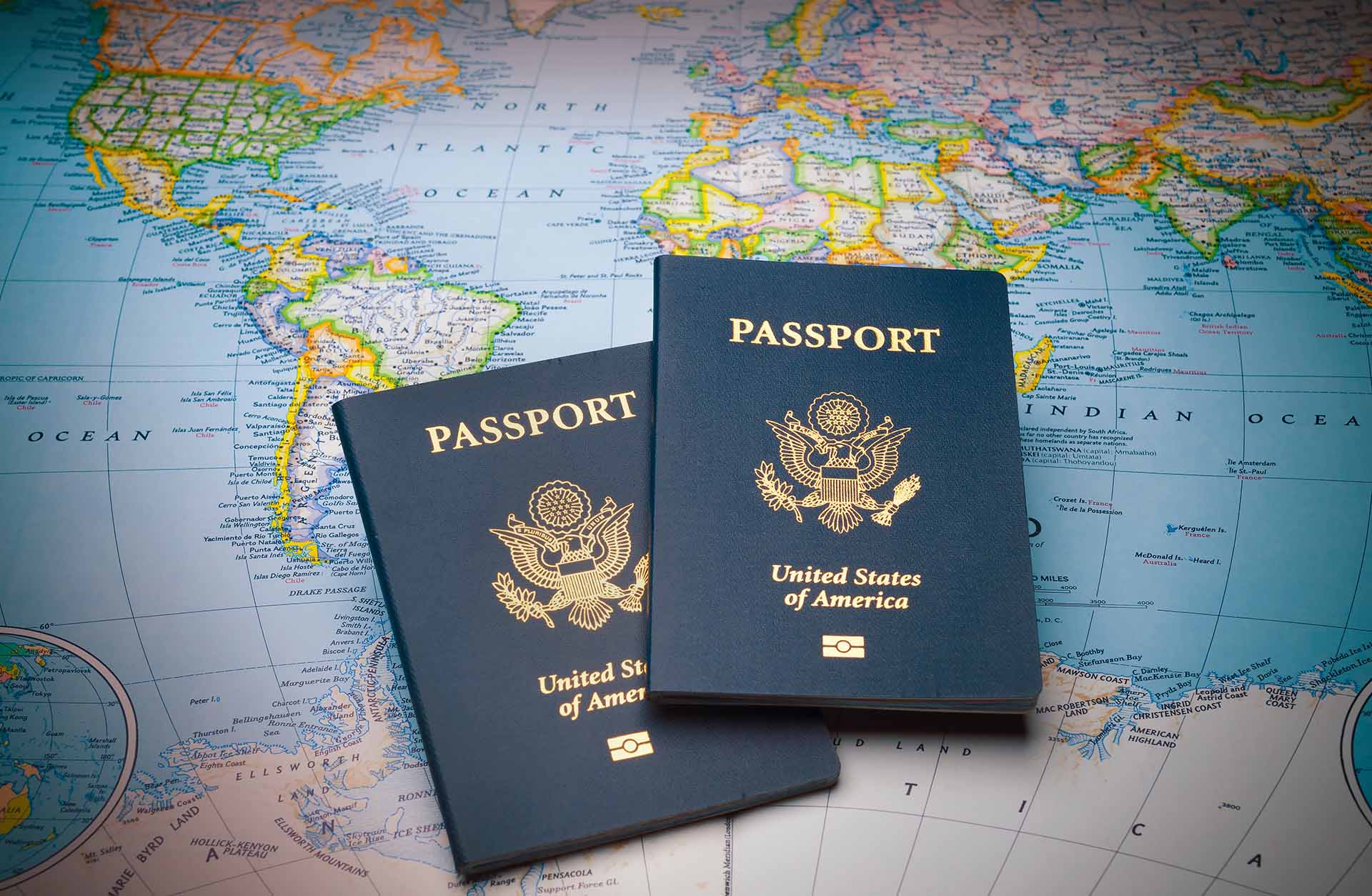If you’re looking for a perfect destination for an overseas move, you may not need to go further than the place aptly named the Emerald Isle. Still, moving to Ireland is quite a complicated process that can take a lot of time. Once you succeed, however, all the rewards for patience and possibly lost nerves will be there in the form of friendly people, lovely countryside, and a high standard of living.

First, let’s spell out some basic information. The Republic of Ireland, locally known as Éire, is a member of the European Union, and its capital city is Dublin. Other larger cities are Cork, Limerick, Galway, and Waterford. Official languages are Irish and English, and the official currency is Euro. The country is also the homeland of some of the most famous beers and whiskeys in the world. And leprechauns and their pot of gold at the end of the rainbow.
Why Should You Consider Moving to Ireland and What Options Are There for Americans
Emerald Isle is a beautiful place. Its green fields, hills, rivers, cities, villages, and fair maidens have been lauded in countless songs over the years. It has a relatively mild climate, without extreme temperatures. It is much more common to experience rain in winter than snow. The wind is a constant, though.
When it comes to the social part of the story, the country has an excellent healthcare system, both public and private. Depending on your legal status, some or all of the public healthcare may be free. It’s not difficult to see why it is always named among the best countries to live in.
However, because of that and other benefits, immigration rules are very strict.
Before you hire a moving company, you should know that US citizens may enter Ireland without a visa and stay there for three months. For anything more than that, they have to apply for long-term visas. Basically, there are three options for staying here permanently: go to the Republic to study, to work, or to retire.
Going to College
To study at some of the Irish universities or colleges as an American, you have to be enrolled in a full-time course. Your chosen course must be on the Interim List of Eligible Programmes (ILEP) if you are to be able to apply for a student visa. Information about ILEP can also be obtained in an Irish Embassy or consulate. However, keep in mind that the time spent studying here will not be considered as an official residence if you opt to apply for citizenship.
Moving to Ireland for Employment
This may be the most difficult path if you wish to make a new home on the Emerald Isle. You’ll need to have a job waiting for you, and your status will still depend mostly on how much you earn. For a start, you’ll have to convince an employer to take you, instead of a citizen of any EU member state. In case your current workplace might be transferred there, be sure to ask the employer all the relocation questions.
Requirements for an Irish Work Permit
To apply for a work permit, you have to have a standing job offer, with a salary of no less than 30,000 euros ($32,000) per year. Either you or your prospective employer may submit the application. With the first permit, you are required to work for one employer for a year. Once acquired, the first permit is valid for two years, after which it has to be renewed. Then it will last for three years. After five years of working legally, you may apply to be exempt from the requirement for permits.
Want to Retire on the Emerald Isle?
Retirement in the Republic is a very popular option, especially (not surprisingly) among the Irish-Americans. In fact, almost a third of Americans of Irish descent would like to spend their golden years in their motherland, according to some surveys. However, it has become harder to achieve with the introduction of novel rules. Now it almost entirely depends on the income of retirees, which has to be quite high.

What You’ll Need To Provide?
Here are some additional tips about the needed documentation. But before we proceed, it is very important to say that you are not guaranteed a prolonged stay even if all documentation is in order. Relevant local authorities have all discretionary powers when it comes to immigration applications, especially the so-called travel intent.
To be eligible to enter the Republic as a student, you’ll have to provide several documents along with the application. The first is the acceptance letter from the school or program that falls under ILEP. Also, you must show proof that all fees and tuition have been paid, as well as evidence that you have 7,000 euros on your bank account, as well as 7000 euros for each year in college. You have to provide documentation that proves that you have private medical insurance, as well. Last, and for an American perhaps easiest of them all, is the evidence of capacity to follow classes in English.
Student visas are given on the condition that the student will return to his or her homeland after graduation. That rule can be sidestepped, though, but more on that in a moment.
When it comes to working, you (or your would-be employer) have to submit an application for a permit, along with a fee of 1,000 euros (around $1450). In the application, you’ll be required to put your passport information, social security number, as well as data pertaining to your education and previous jobs. Your employer’s data will have to be there, too.
To get a permit, you either have to have a job that pays at least 60,000 euros per year or a job that pays at least 30,000 Euros per year and falls under the “strategically important” category. Those are mostly highly-skilled professions, such as nurses or IT specialists. In practice, that means that obtaining a permit for a low skilled or menial job is next to impossible.
In case you are relocating with a family, after you get the permit, your spouse can apply for a special working permit, too.
Retirees will have to prove that their annual income will not drop below 50,000 euros (around $55,000) for as long as they live on the Emerald Isle. For married couples, that sum climbs to 100,000 Euros per year ($110,000). Also, senior citizens’ applications are not of high priority, so they should be ready for a longer waiting time.

How to Become a Resident?
You can apply for permanent residency in several ways, but the most common requirement is to work legally for at least five years. When applying to the relevant authority (INIS), you should submit visas, permits, and a passport, among other things. When you do so, the ensuing process might last up to six months. Resident status lasts for five years and has to be renewed afterward.
Another path to obtaining permanent residency is through marriage with an Irish citizen. That is a loophole for students we talked about earlier. Love conquers all, right?
Requirements for Would-Be Citizens
The Republic’s laws on naturalization, like those for immigration, are strict and complicated. But there are a few easier ways to obtain citizenship, though you may not have much say in some of them.
First, citizenship by descent. If any of your parents or grandparents were born on the Emerald Isle, you are eligible for citizenship. Maybe you are already written down as Irish, but to get a passport, you’ll have to register your birth. Since dual citizenship is accepted by both Washington and Dublin, you won’t have to give back a US passport to become Irish. Ireland’s government has a treaty with the US to avoid double taxation, so no problems there, either.
As we’ve mentioned, another easier road to citizenship is through marriage. You have to be married to an Irish citizen for at least three years (and live there, too) before you can apply.
Much more complicated is the process of naturalization. To be eligible to become a citizen that way, you’d have to reside in the country for at least five of the last nine years, and during the final, ninth year, you cannot travel abroad. The catch is that time spent in the country on student or work visas more often than not doesn’t count towards the so-called “reckonable residence.”
As with residency, granting citizenship is at the discretion of the government.

Tech Sections of the Economy Are In Step With Times
Ireland’s economy experienced a boom in the ’80s and ’90s, earning the nickname “Celtic Tiger.” After that came the period of recession and debt crisis, but the worst has passed. If you are ready to pack up and hire international moving services, know that some of the most lucrative employment opportunities are found in the IT sector. It was one of the industries that least felt the crisis, and it keeps going strong.
What Kind of Workers Are Needed?
Some professions are in high demand in Ireland. Those are currently engineers, healthcare workers, experts in international marketing, specialists in management, and professionals in environmental health and social sciences. There are numerous specialized sites that you can visit if you wish to read more:
- ie
- ie
- indeed.com
It is significant to notice, though, there are some professions that make an applicant ineligible for a permit.

Living in Dublin and Beyond
Before you move, you should at least consider where you would live. It would be best if you could travel to the preferred destination beforehand, and check out your potential new home if you plan to buy real estate.
The country has three big international airports, as well as one of the largest low-cost airlines in Europe, so traveling across the continent shouldn’t be too difficult.
It has to be noted that Dublin is often put among the best places to live abroad with family, thanks to the low crime rates, accessibility of healthcare, and easygoing people.
Public transportation systems in major cities are also well developed, and bicycles are a common sight. Still, if you opt for overseas vehicle shipping, you won’t have to change your driving license, since the American one is also accepted. Be prepared, however, for a bit of a shock because the Irish drive on the left side of the road, just like Brits and Australians.
The Cost of Living
As you may expect, prices are much higher in cities like Dublin and Cork than in smaller towns or rural areas. That goes for housing and rents, as well as for all other expenses. Still, Dublin may be well worth it. It should be noted that housing prices are on the rise across the state. Another downside may be somewhat higher taxes, at least from the American point of view. However, relocation to the Emerald Isle means going to one of the lands with the highest quality of life. That, along with almost magical landscapes, should be the deciding factor for you.
When it comes to the question of what to pack for the move abroad, it should mostly depend on your accommodation. If you don’t want to part from something that can’t be fitted into your house, putting it in storage is always a safe bet.
Visit the Best Pubs In the World
If endless green fields are the first thing that comes to mind when you think about it, Ireland is also famous for its pubs. And whiskey and beer alongside them. Pubs count among the best in the world. So go down to the local watering hole and down a pint or two of Guinness with your newly-met friends while watching a game of soccer (or football as they would call it) or rugby.

Make Sure to Learn How to Celebrate Christmas
There is no better way to finish this little guide than with one essential thing – how to celebrate Christmas. It is a big thing on the Emerald Isle, and it is observed from the beginning of December to the 6th of January. If you find yourself near a body of water, be it a river or the sea, on Christmas morning, expect to see scores of people taking a swim for charity. On the last day of celebrations, also known as Women’s Christmas, tradition mandates that women do no housework, while men prepare food and take down decoration. Not doing so invites bad luck. And if you want to blend in better, learn to wish happy holidays as the local people do: Nollaig Shona Duit!








